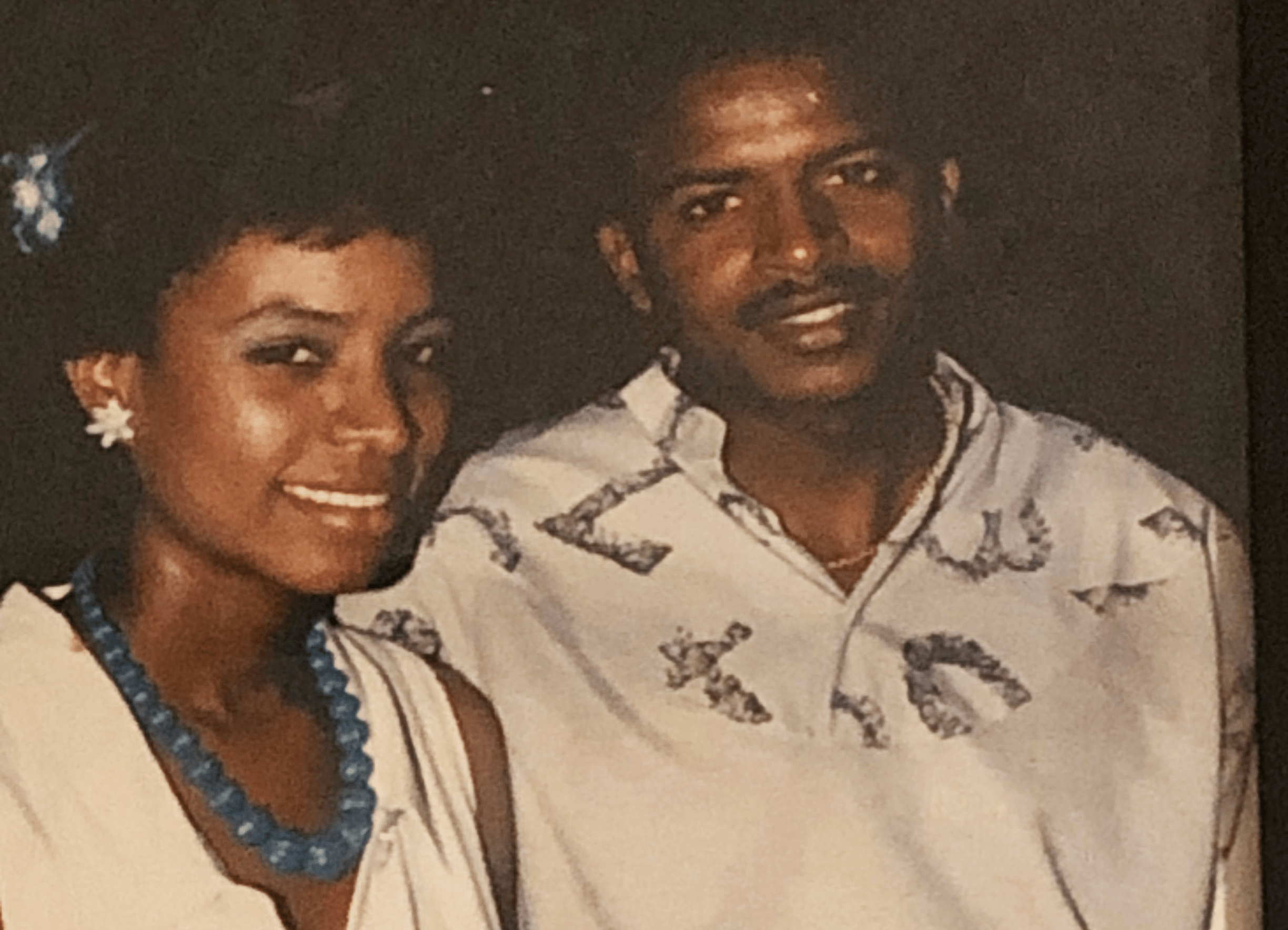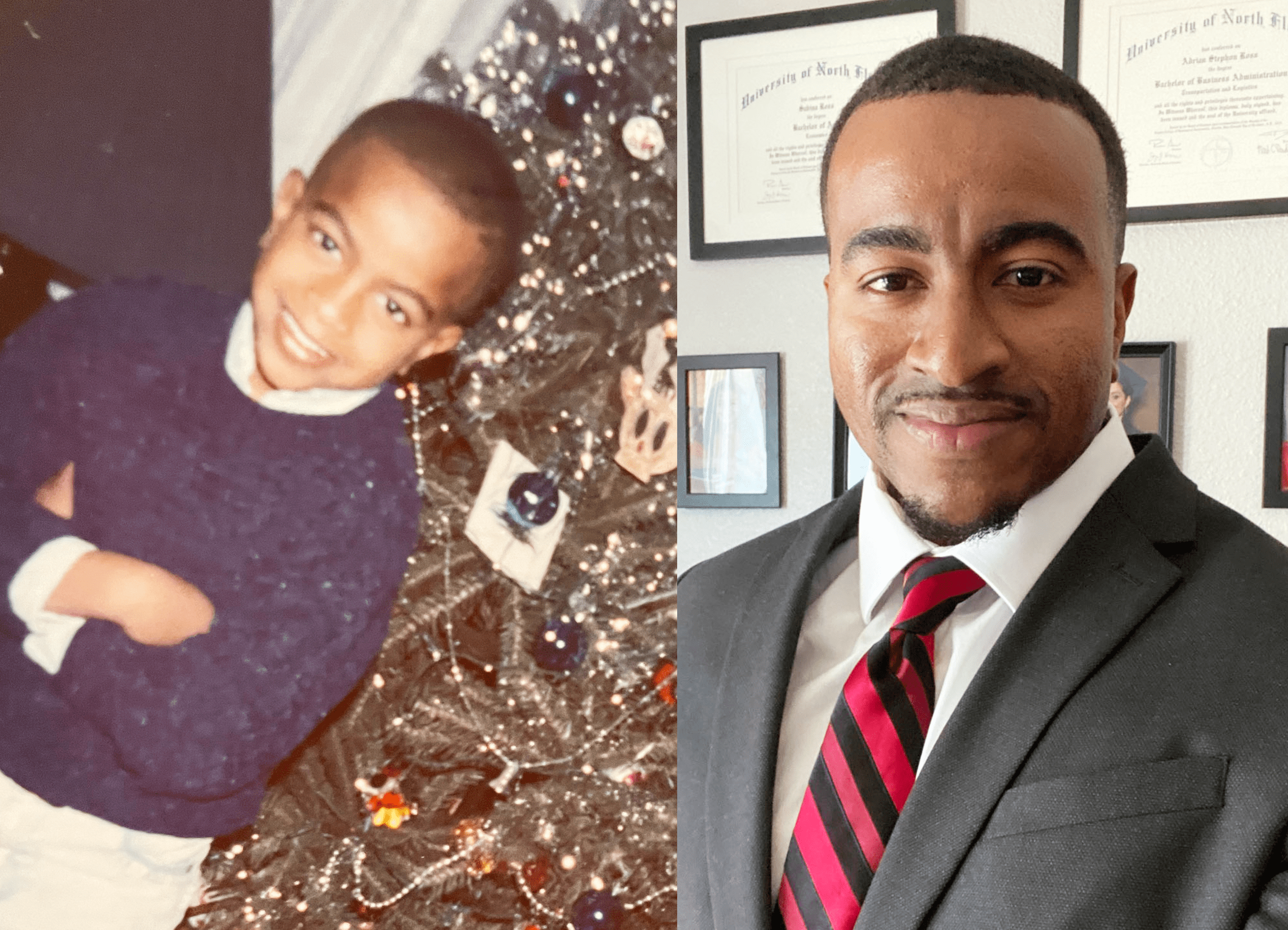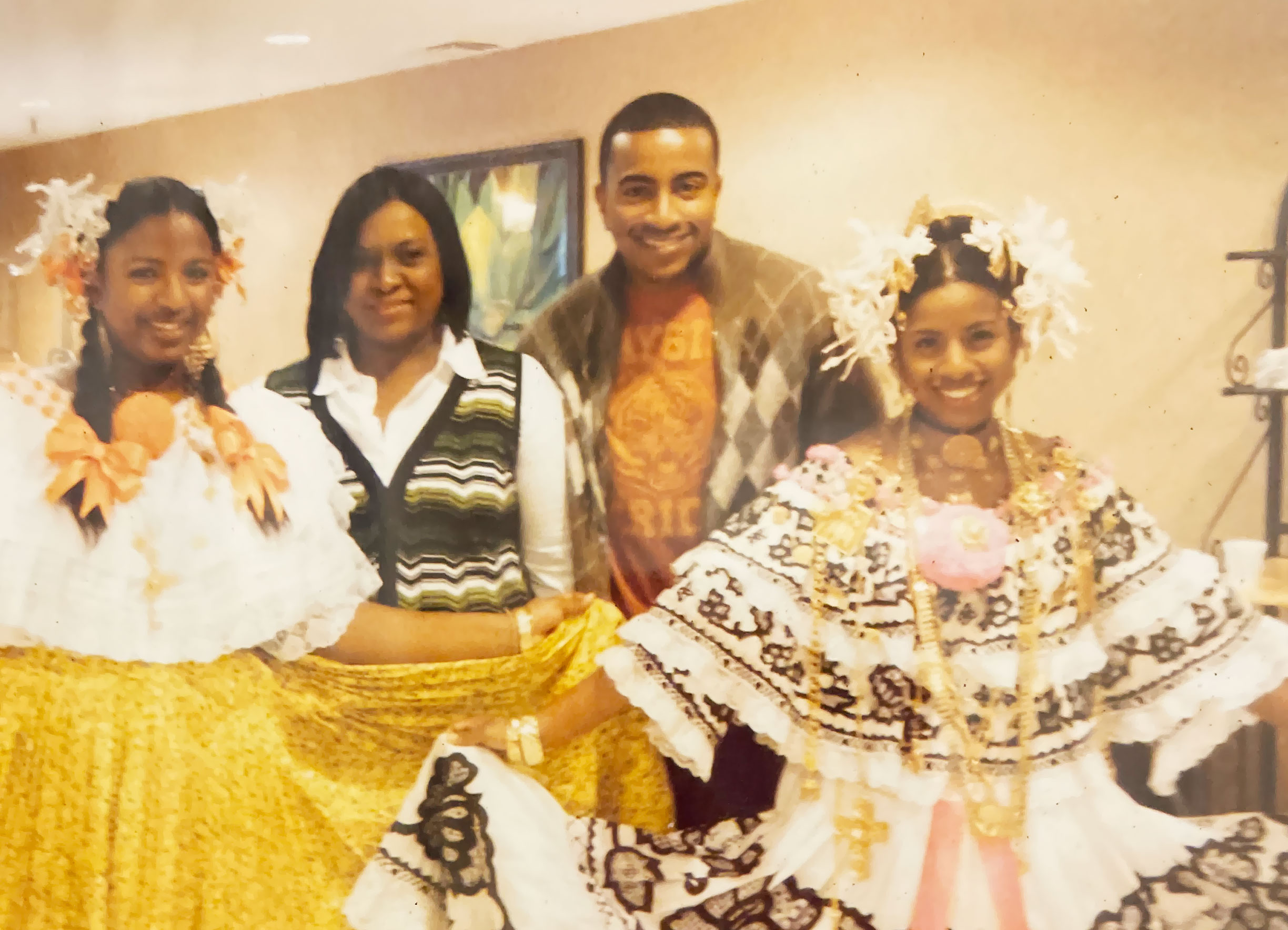
By Adrian Ross
Sales Development Manager
While some grew up in the Civil Rights Movement’s heights and have seen it evolve, I have experienced its ripple effects as an ethnically mixed individual.
Picture this, a U.S Navy Petty Officer, 2nd Class, is stationed in the tropical-warm land of Panamá, meets a beautiful Panamanian woman, they have a child together who’s born in Colón, Panamá, but decide to raise him in the U.S. That’s me, Adrian Ross. I racially identify as a black man. Ethnically, I’m Afro-Panamanian and American.
My father retired in Jacksonville, Fla., where I’ve spent most of my life. After graduating from nearby Orange Park High School, I worked as a credit services customer service representative when I met my wife, Sabina. We have two daughters (Selena, 9 and Leila, 14) and they are my world! I joined the Army National Guard in 2010; my service there taught me a lot about myself and leadership in general and I was able to earn a degree in transportation and logistics. I separated from the military after seven years of service as a first lieutenant. I’ve been at Crowley for almost five years, working in different areas like intermodal transportation and sales, where my career grew from an inside sales supervisor representative to my current position as sales development manager.

“U.S Navy Petty Officer, 2nd Class, is stationed in the tropical-warm land of Panamá, meets a beautiful Panamanian woman, they have a child together. That’s me, Adrian Ross. I racially identify as a black man. Ethnically, I’m Afro-Panamanian and American.“
Too Black to be Hispanic. Too Hispanic to be Black.
Through my multicultural background and life experience, I’ve become a more open-minded person. For some, I was too Black to be Hispanic. For others, I was too Hispanic to be Black. This gap not only fed my self-awareness but opened up my mind to the fractures we have in society which resulted in my fascination and curiosity about different cultures.
My first vivid memory of racism is within my own family. In some Hispanic cultures, you may hear normalized phrases like “hay que mejorar la raza” which translates to “you have to improve the race,” while it can be said jokingly, the connotation with it is that you “improve” the race by making it whiter. When I understood that, I spoke about it with my immediate family first. One of the great things about my American side is that it facilitated that conversation as calling out racist ideas is more commonly accepted. On my Hispanic side, racism becomes harder to see because we’re all so mixed. But there’s a latent and often explicit nature to racist ideas through normalized phrases. For me, it’s essential to think and speak up about these things.
What has worked for me while interacting with any culture, at work or otherwise, is to ask for clarification, respectfully and tactfully, when statements come across as ambiguous. I’m cognizant that we all don’t have the same cultural background and, oftentimes, people are just perpetuating generalized, outdated memes. In thinking about this, I take the optimistic route and assume most people aren’t being malicious. My hope is that through engagement and conversation, more people are open to speaking on these issues and receiving any challenging ideas with curiosity, contemplation, and kindness.
“On my Hispanic side, racism becomes harder to see because we’re all so mixed. But there’s a latent and often explicit nature to racist ideas through normalized phrases. For me, it’s essential to think and speak up about these things.“

My Identity and Pride
As a Black, Afro-Panamanian American man, I think about my identity whenever I leave my house. I’m self-aware of people’s preconceived notions associated with what you look like. This sensitivity has heightened my empathy levels when interacting with others, whether at work or in my personal life. I recognize that everyone is in their heads and going through things we don’t know about. I remember that and act accordingly.
My upbringing in the U.S. kept a lot of my family’s Panamanian heritage. What’s nice about being Latino is that there’s an implicit warmness to the culture that is so comforting. There’s a sense of connected familiarity with one another. With time I’ve learned about the struggles and strife that Latinos endured and continue to endure. It’s fascinating to see how the cultures continue to not only exist but flourish in the face of that much adversity. It’s a human story, a collective experience.
From my perspective, Black History Month impacts the Latinx community by allowing us to think openly about the Afro-Latinidad of some of our members. Our community is so diverse, that it may blur our view to think racism isn’t present, but it is. Anti-black and anti-indigenous sentiments are rampant and out there, we just have to be open to see them and change the narrative. If you hear these sorts of things from your family and friends (or yourself!), recognize it and reflect on how you can do better. It’s constant work to undo racist ideas, but it’s a meaningful project.

“Black History Month impacts Latinx community by allowing us to openly think about the Afro-Latinidad of some of our members. Our community is so diverse, that it may blur our view to think racism isn’t present, but it is.”
Allyship: The Role of Current and Future Generations
I think diversity is our strength. Surrounding ourselves with individuals from different backgrounds, ages, genders, etc., will help us have better ideas due to unique vantage points. This collaborative effort to understand each other will result in making everyone feel welcome and appreciated.
At work, I feel good about the same things that make most people feel supported and engaged: conversations about goals, achievement recognition and encouraging professional development. The Black community is not a monolith; there’s room for anyone interested in getting involved. In my opinion, engaging with your Black colleagues, it’s a great way to start. Ask and learn about their causes, they can point you to learning opportunities that impact their community.
To support the Afro-Latinx community, be curious and open-minded. That can look like simple things, such as being aware of relevant holidays, such as Juneteenth, or being aware that Cinco de Mayo is not Mexico’s Independence Day. Be a better ally by taking an interest in things like what is going on with other Diversity, Equity, and Inclusion initiatives. If you identify as a member of any of these communities, that goes for us too, we should strive to be our best allies.
We are committed to growing the leadership and development of Black talent within the organization. Our goal is to foster a culture that is honest to our values and champions diversity of experiences and inclusion of perspectives while encouraging innovation. We have many opportunities available where your skills, knowledge and experience can Carry the World. Forward.